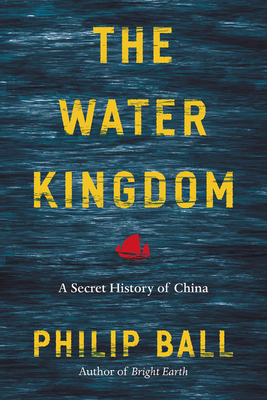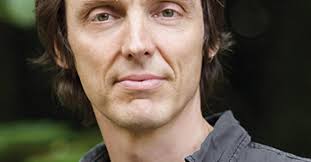

 University of Chicago Press
University of Chicago Press
The Water Kingdom: A Secret History of China


Key Metrics
- Philip Ball
- University of Chicago Press
- Hardcover
- 9780226369204
- 9.1 X 6 X 1.1 inches
- 1.35 pounds
- History > Asia - China
- English
 Secure Transaction
Secure TransactionBook Description
Water, Ball shows, is a key that unlocks much of Chinese culture. In The Water Kingdom, he takes us on a grand journey through China's past and present, showing how the complexity and energy of the country and its history repeatedly come back to the challenges, opportunities, and inspiration provided by the waterways. Drawing on stories from travelers and explorers, poets and painters, bureaucrats and activists, all of whom have been influenced by an environment shaped and permeated by water, Ball explores how the ubiquitous relationship of the Chinese people to water has made it an enduring metaphor for philosophical thought and artistic expression. From the Han emperors to Mao, the ability to manage the waters ― to provide irrigation and defend against floods ― was a barometer of political legitimacy, often resulting in engineering works on a gigantic scale. It is a struggle that continues today, as the strain of economic growth on water resources may be the greatest threat to China's future.
The Water Kingdom offers an unusual and fascinating history, uncovering just how much of China's art, politics, and outlook have been defined by the links between humanity and nature.
Author Bio
Philip Ball is a freelance science writer. He worked previously at Nature for over 20 years, first as an editor for physical sciences (for which his brief extended from biochemistry to quantum physics and materials science) and then as a Consultant Editor. His writings on science for the popular press have covered topical issues ranging from cosmology to the future of molecular biology.
Philip is the author of many popular books on science, including works on the nature of water, pattern formation in the natural world, color in art, the science of social and political philosophy, the cognition of music, and physics in Nazi Germany. He has written widely on the interactions between art and science, and has delivered lectures to scientific and general audiences at venues ranging from the Victoria and Albert Museum (London) to the NASA Ames Research Center, London's National Theatre and the London School of Economics.
Philip continues to write regularly for Nature. He has contributed to publications ranging from New Scientist to the New York Times, the Guardian, the Financial Times and New Statesman. He is a contributing editor of Prospect magazine (for which he writes a science blog), and also a columnist for Chemistry World, Nature Materials, and the Italian science magazine Sapere. He has broadcast on many occasions on radio and TV, and is a presenter of "Science Stories" on BBC Radio 4. He is a Fellow of the Royal Society of Chemistry, sits on the editorial board of Chemistry World and Interdisciplinary Science Reviews, and is a board member of the RESOLV network on solvation science at the Ruhr University of Bochum.
Philip has a BA in Chemistry from the University of Oxford and a PhD in Physics from the University of Bristol.
Source: PhilipBall.co.uk
Videos
No Videos
Community reviews
Write a ReviewNo Community reviews